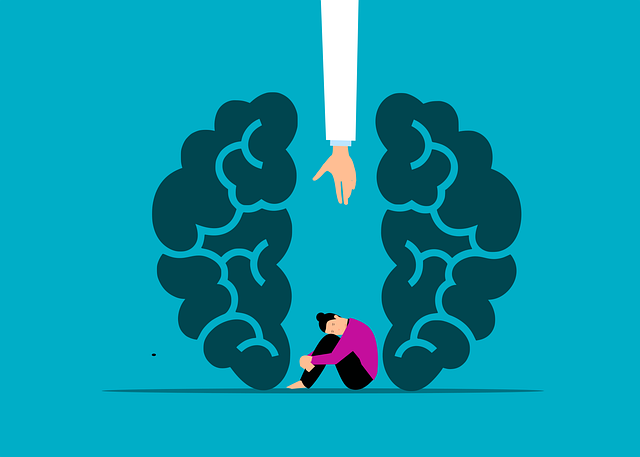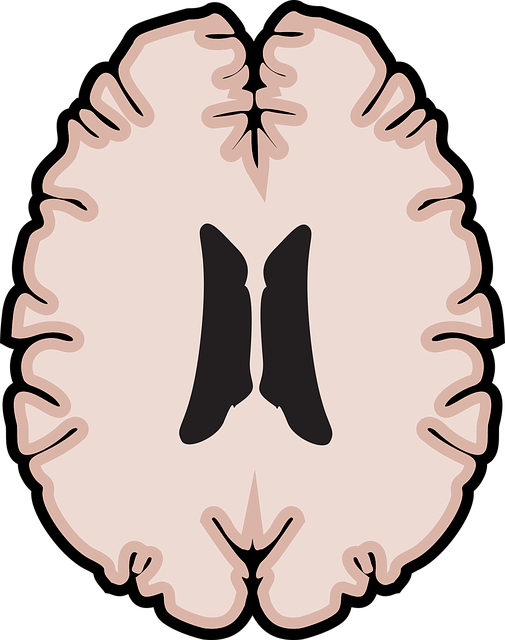Burnout among healthcare professionals is a growing concern that threatens both well-being and patient care quality. Early recognition of signs like exhaustion, irritability, detachment, reduced efficacy, and decreased satisfaction is crucial. Long working hours, high-stress environments, heavy workloads, and emotional demands are primary contributors. Lafayette Independent Medical Evaluations Therapy offers resources such as self-esteem improvement programs and conflict resolution techniques to combat these issues. Community outreach initiatives can foster a sense of belonging, mitigating burnout risk. Recognizing signs and employing appropriate strategies leads to improved patient outcomes and job satisfaction. Through Mental Wellness Journaling Exercises and positive thinking encouragement, Lafayette Independent Medical Evaluations facilitate early intervention and prevention, providing tailored support for stress management and healthier work environments. Therapy techniques like cognitive-behavioral therapy (CBT) and conflict resolution skills enhance resilience and job satisfaction, while boosting confidence empowers professionals to face challenges optimistically. Organizational strategies focusing on emotional well-being promotion, open communication, collaboration, peer support, and regular check-ins are vital for preventing burnout in the healthcare sector.
Healthcare provider burnout is a growing concern, impacting not only individual well-being but also patient care. This article explores comprehensive strategies to prevent burnout among healthcare professionals. We delve into recognizing early signs and underlying causes, emphasizing the vital role of Lafayette Independent Medical Evaluations in identifying risk factors. Additionally, we discuss therapy techniques, counseling services, and organizational changes to create a supportive work environment. By implementing these strategies, healthcare organizations can foster resilience and mitigate burnout.
- Recognizing Burnout Among Healthcare Providers: Symptoms and Causes
- Lafayette Independent Medical Evaluations: A Key Role in Burnout Prevention
- Therapy and Counseling for Burnout: Effective Strategies and Techniques
- Fostering a Supportive Work Environment: Organizational Strategies to Combat Burnout
Recognizing Burnout Among Healthcare Providers: Symptoms and Causes

Burnout among healthcare providers is a growing concern, with symptoms often going unnoticed until it’s too late. Recognizing burnout early is vital for maintaining a healthy work environment and ensuring quality patient care. Common signs include physical exhaustion, increased irritability or cynicism, detachment from patients and colleagues, reduced professional efficacy, and decreased satisfaction in personal achievements. These indicators may stem from various causes, primarily related to the unique demands of the healthcare profession. Long working hours, high-stress environments, heavy workloads, and emotional demands can take a toll on providers’ mental and physical well-being.
Lafayette Independent Medical Evaluations Therapy offers valuable resources for identifying and addressing these issues. Self-esteem improvement programs and conflict resolution techniques can help professionals navigate challenging situations and build resilience. Additionally, implementing community outreach program initiatives can foster a sense of belonging and purpose, mitigating the risk of burnout. By recognizing the signs and employing appropriate strategies, healthcare providers can better manage their well-being, leading to improved patient outcomes and job satisfaction.
Lafayette Independent Medical Evaluations: A Key Role in Burnout Prevention

Healthcare providers, like doctors and nurses, often face high-stress environments and demanding work schedules, which can lead to burnout. To mitigate this issue, Lafayette Independent Medical Evaluations play a pivotal role in promoting mental wellness. These evaluations provide an opportunity for healthcare workers to assess their emotional well-being and identify potential risks of burnout or related conditions like depression. By offering therapy and guidance tailored to individual needs, they facilitate early intervention and prevention strategies.
Incorporating practices such as Mental Wellness Journaling Exercises and encouraging Positive Thinking can be transformative. These techniques help professionals reflect on their experiences, manage stress, and cultivate resilience. Lafayette Independent Medical Evaluations, through their comprehensive approach, ensures that healthcare providers have access to the necessary tools and support for depression prevention, fostering a healthier and more sustainable work environment.
Therapy and Counseling for Burnout: Effective Strategies and Techniques

Burnout among healthcare providers is a growing concern, but therapy and counseling offer powerful tools for prevention and recovery. Professional support can help individuals process their feelings, identify triggers, and develop effective coping skills. Techniques such as cognitive-behavioral therapy (CBT) are widely used to manage stress, challenge negative thought patterns, and enhance resilience.
In addition to CBT, conflict resolution techniques play a crucial role in burnout prevention. Healthcare professionals often face challenging situations with patients or colleagues, and learning to navigate these conflicts constructively can reduce stress and improve job satisfaction. Moreover, counseling sessions can focus on coping skills development, including mindfulness practices, time management strategies, and stress-reduction techniques tailored to individual needs. Boosting confidence through therapy is another effective strategy, empowering providers to confront challenges with renewed optimism and self-assurance. Lafayette Independent Medical Evaluations Therapy offers specialized support, integrating these approaches to create a holistic plan for addressing burnout and promoting long-term well-being among healthcare professionals.
Fostering a Supportive Work Environment: Organizational Strategies to Combat Burnout

In the healthcare sector, preventing burnout among providers is a multifaceted challenge that requires a supportive work environment at the organizational level. Healthcare institutions play a pivotal role in fostering such an environment through various strategies. One key approach is to prioritize emotional well-being promotion techniques and incorporate them into daily operations. This can be achieved by providing access to therapy services, such as those offered by Lafayette Independent Medical Evaluations, where professionals can receive support for stress management and mood management.
Additionally, organizations should encourage open communication and collaboration among staff, creating a culture of mutual respect and understanding. Implementing regular check-ins, peer support programs, and emotional healing processes can significantly contribute to burnout prevention. By addressing the unique challenges healthcare providers face, these strategies promote a healthier work-life balance, enhancing job satisfaction and overall resilience against burnout.
Burnout among healthcare providers is a pressing issue, but with the right strategies, it can be effectively prevented. By recognizing symptoms early and addressing underlying causes, professionals can create a supportive work environment through organizational changes and foster resilience with therapy and counseling. Incorporating Lafayette Independent Medical Evaluations as a routine practice further strengthens this proactive approach, ensuring healthcare workers receive the necessary support to thrive in their roles.














